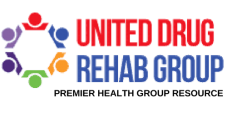OUR TREATMENT PROGRAMS
Allow Upfront Recovery to customize a treatment solution that works best for you. Whatever your situation, sobriety can be found here. Our extensive network includes outpatient, inpatient, and part-time inpatient.Qualified professionals are here to help guide you. Call Upfront Recovery to begin the journey toward sobriety. Here is a list of the general treatment options our network provides.
 RESIDENTIAL TREATMENT
RESIDENTIAL TREATMENT
A free-standing residential addiction treatment facility is basically a stand-alone building, that specializes in the treatment of drug addiction, alcoholism and dual diagnosis. Patients generally reside within the addiction treatment facility 24 hours a day, while under the care of a team of addiction professionals. While these addiction treatment programs may have other components of care such as day treatment, partial hospitalization or outpatient, their main focus lies in providing 24-hour residential care for their patients. Free-standing addiction treatment programs are also capable of providing drug and alcohol detox, but not all addiction treatment programs offer this service in-house.
The average length of stay for private insurance in these addiction treatment centers is approximately 20 days. A residential center that is federally funded may have a length of stay that is approximately three to six months.
Just call Sober Living Drug Rehab and we will be more than happy to assist you in locating quality addiction treatment programs or alcohol treatment centers that meet your needs.
LONG TERM RESIDENTIAL TREATMENT OR EXTENDED CARE:
These long-term addiction treatment programs were designed for people who had completed anywhere from fourteen to thirty days of residential addiction treatment and for a variety of reasons required additional residential treatment. A few of the criteria for long-term addiction treatment are if you are:
o Still displaying drug seeking behavior after completion of a thirty day addiction treatment program
o Experiencing relapse after a short term stay in an addiction treatment center
o Requiring additional time in a structured setting to resolve outstanding clinical issues
The average length of stay in a long-term addiction treatment center is approximately 90 days. Originally designed to treat impaired professionals, the additional time in long-term addiction treatment proved so positive, that many addiction treatment facilities began referring other patients. Today, it is not uncommon for anyone to access long-term addiction treatment.
Recovery Connection® can assist you in determining if you require this type of addiction treatment and help you find a quality long-term addiction treatment center that meets your needs.
OUTPATIENT ADDICTION TREATMENT PROGRAMS:
Outpatient addiction treatment programs are more suitable for individuals who are employed, have extensive social support systems, can maintain abstinence for up 72 hours and are highly motivated individuals. Patients of outpatient addiction treatment programs generally reside at home and attend the program several evening or days during the week. While most people with substance abuse or alcohol problems would rather attend outpatient addiction treatment, not everyone is appropriate for this level of care. An extensive assessment must be completed to determine whether an outpatient addiction treatment program can meet your needs. The length of these programs is approximately six weeks; they generally meet three to five times a week for three hours each meeting.
PARTIAL HOSPITAL OR DAY TREATMENT PROGRAMS:
Partial hospital or day addiction treatment programs are a step above outpatient addiction treatment in that they meet five days a week for approximately four hours every day. Initially designed as a “step down� program for those persons completing residential care, they became an option for some insurance carriers in an attempt to negate having to pay for extended residential addiction treatment. These types of addiction treatment programs became very popular in the late 90′s, especially in providing mental health care for the Medicare population. Patients generally live at home or in another structured setting and attend these addiction treatment programs during the day.

 RESIDENTIAL TREATMENT
RESIDENTIAL TREATMENT
